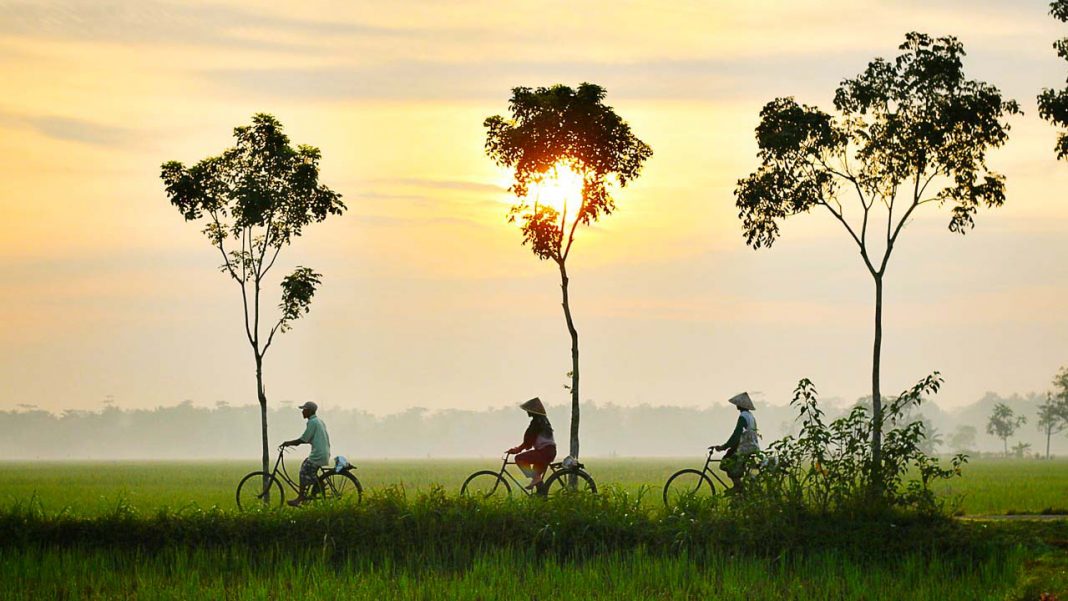Wei River Farmhouse
The light at dusk cast shadows on the old grave stones
The ox and sheep return down the shabby lane
In the field an old shepherd reads to his son
Leaning on a cane, waiting at the thorny entrance
In the wheat stocks, I hear the crow of a ringed neck pheasant
Silkworms sleep in the half-eaten mulberry leaves
And the farmers return with hoes on their shoulders
Greeting each other with familiar words
I draw near in envy of their idleness and leisure
Regretfully chanting this little poem
Ah, to go back again
The Golden Hour
The Tang Dynasty was considered China’s Golden Age. The An Lushuan Rebellion came and went and changed all this and nothing would ever be the same.
Charges of disloyalty were lodged against Wang Wei, but dropped. Wishing to escape the limelight, China’s superstar poet and artist became a devout Buddhist and took time to travel and record nature’s beauty.
The scene – a farm house in poor village along the Wei River. It is the hour before sunset, the golden hour to photographers and poets. It is a magical time when everything takes on a golden hue.
Wang tries to record the scene before the sun sets and all disappears. He is walking down an old lane leaving the village. The slanted light (line one, 斜光) on the gravestones (墟, grave) stir thoughts of his mortality. The ox and sheep shuffle down the shabby lane. In the field is an old shepherd and his son. A pheasant stirs in the wheat. And the farmers idly chat.
The poet nostalgically (line 8, 依依, yīyī ) draws near.
渭川田家
斜光照墟落
窮巷牛羊歸
野老念牧童
倚杖候荊扉
雉雊麥苗秀
蠶眠桑葉稀
田夫荷鋤立
相見語依依
即此羨閒逸
悵然吟式微
又作至
Wèi chuāntián jiā
xié guāngzhào xū luò
qióng xiàng niú yáng guī
yělǎo niàn mùtóng
yǐ zhàng hòu jīng fēi
zhì gòu màimiáo xiù
cán mián sāng yè xī
tiánfū hè chú lì
xiāng jiàn yǔ yīyī
jí cǐ xiàn xián yì
chàngrán yín shìwēi
yòu zuò zhì












